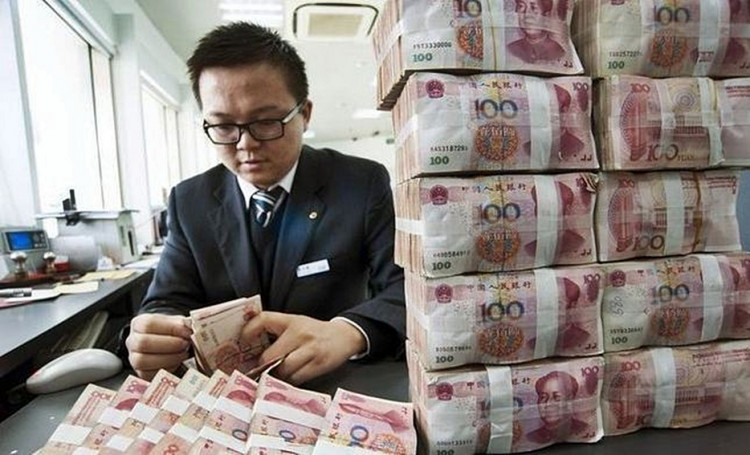China apparently has too much private capital lying around and doesn't quite know what to do with it.
This embarrassment of riches is the consequence of the central government's continuing crackdown on risky wealth management products (WMP), which the government says can pose great systemic financial risks to the economy should the unthinkable happen like a bank holiday.
WMPs are an uninsured financial product sold in China by banks and other financial institutions. These products mostly offer high-interest rates, and guaranteed returns on occasion. As of June, the outstanding amount of non-guaranteed bank WMPs stood at $3.09 trillion, hence the systemic risk to the economy.
Also contributing to the surprising wealth growth are the massive savings accumulated by the country's rapidly growing, wealthier but aging population. Much of this money,, however, remains parked in bank deposits and bank portfolios.
In December 2017, the central government issued a tougher regulation to prevent banks from offering retail investors WMPs marketed as higher-yielding alternatives to deposits. This regulation means trillions of dollars now in WMPs will "be looking for a home over the next couple of years," according to a report by McKinsey & Company, the American worldwide management consulting firm.
As a consequence of all these providential factors, a so-called "Great Wall of Capital" is forming in China.
McKinsey says the big opportunity in China. It emphasized that some 40 percent of Asia assets under management is currently in China. This percentage will increase over the coming years as Asia gets wealthier and wealthier.
Asia's wealth market is projected to more than double by 2025 to S330 trillion overtaking both the United States and Western Europe, said McKinsey. The investment firm also noted that high net worth individuals, rapid GDP growth and the rise of entrepreneurs are "producing a strong affluent cohort" in China and Asia.
Despite the lucrative opportunities, foreign fund managers face numerous challenges in harnessing this wealth. This seems to mean that much of China's wealth will remain in China for the time being.
A reason or this is the need for foreign fund managers to have a local distribution partner in China in order to build strong ties with domestic investors. McKinsey, however, doesn't see more partnerships between assets management and some of the Chinese technology platforms.
This situation notwithstanding, foreign ownership of Chinese equities and bonds grew 64 percent to $435 billion over the past 12 months. This might have been helped along by new government rules allowing foreign asset managers to control 51 percent of a local securities joint venture.
This ruling further opened the door for overseas mutual fund companies to set-up onshore. Efforts by foreign asset managers to establish businesses in China continue to be hampered by a mass of regulatory restrictions.






